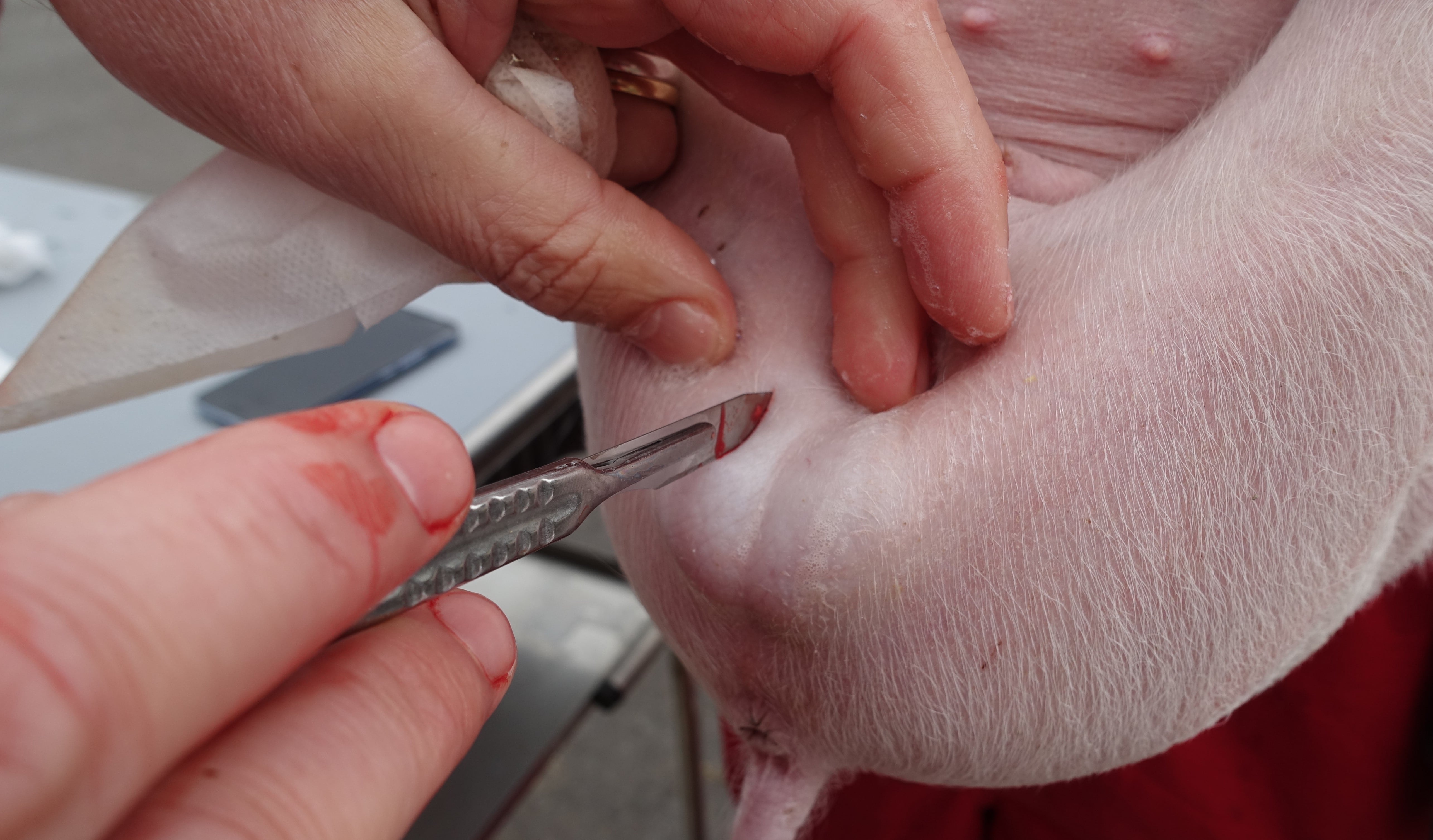When castrating male piglets, antibiotic sprays or powders are usually used to treat the wound. In addition to the introduction of antibiotic substances, these applications sometimes irritate the skin and can be painful for the piglets.
Plant substances have been used to heal wounds for thousands of years. It was investigated to what extent phytotherapeutic ointments can improve wound healing and whether they are equivalent to the use of antibiotic substances.
95 piglets were randomly divided into five treatment groups: spruce balm (Vulpuran), spruce resin (Abilar), lard (ointment base of Vulpuran), no treatment (negative control) and antibiotic blue spray (Cyclo-Spray, positive control). Wound healing parameters (healing time, wound size, redness of the wound edges and the surrounding area, swelling, secretion and wound contamination), microbiological status, blood count and haptoglobin concentration were examined. Some positive effects on wound healing parameters were found in the spruce groups. Treatment with Vulpuran resulted in significantly lower wound secretion than the untreated control (p = 0.003). The smallest wound areas were found on day 6 of using Abilar and Vulpuran compared to all other treatments. On the last day of the study, the highest number of closed wounds was found in the spruce groups. The results suggest that treating castration wounds with conifer resin leads to faster wound healing. However, since applying an ointment is significantly more complex than applying a spray, the practical application is likely to be moderate.







